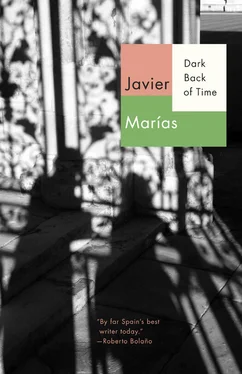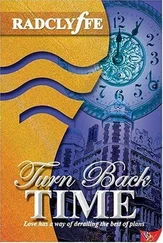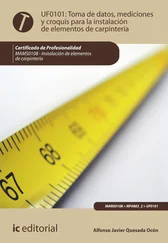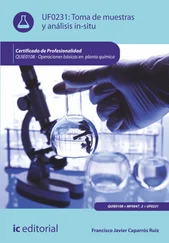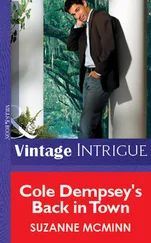
My brother looks like a thoughtful child in the painting, with serene, wide-open eyes that look out of the picture as if he understood more of the world than his years would warrant. The numbers in the lower right corner are hard to make out, it’s possible that the oil painting was done from a photograph when Julianin was no longer alive. I could ask my father, who certainly knows, but I hesitate to call him up and force him to remember and make him sad with all this, he must be serenely occupied with some visitor right now, or typing out an article, or re-reading Simenon or Dumas or Conan Doyle, whom he always re-reads, or Colin Dexter, the detective novelist from Oxford, in fact, the latest one who, with his Inspector Morse, amuses my father. Elderly people shouldn’t be made any sadder, they generally are a little sad already, naturally. But I’m also convinced that my father hasn’t let a day go by since 1977 without thinking of his lost wife, or, since 1949, of his lost son. Perhaps I’ve heard him speak more about the child than my mother did, and he wrote something in his memoirs a few years ago, with composure. It may be that the boy did understand more about the world than his years would warrant and perhaps he died for that; he appears to have been a singular boy, though you never know to what extent someone who no longer exists and never did any harm is idealized. And though my parents were careful, we brothers always had the feeling that Julianin would have been better than the four of us were, and we accepted this unproblematically, only the most despicable people are jealous of the dead. In any case, he was not ordinary, to judge by his first comment on seeing our brother Miguel, who had just been born, and over whom he had the benefit of two long years’ experience. He leaned over the basket, looked at him, and said with a child’s gravity, “He doesn’t know how to talk, he has no memory and he has no teeth,” and he said it in that order. He appears to have treated Miguel affectionately during the year and a half they shared the world in the house that was later mine; he must have been patient and peaceable because when the littler one took away his toys and broke them, the older brother laughed and said to my mother: “Let him break them. He’s a little foolish, but he’s good. I love him.” That’s what they told us.
I remember there were some old-fashioned-looking toys that had belonged to this absent boy, and for that reason we weren’t allowed to play with or hardly even to touch them (and here I realize that he is not and cannot be included in this “we,” because he never lived to play with us, not even Miguel has his own memory of him). There weren’t very many, the only one I can see clearly is a very pretty spinning zoetrope, you could choose the image you wanted among several bands or rolls of painted paper and watch the monotonous movement of the figures through the slits, while the round black cylinder spun in its tall shaft, pushed by your hand: the prehistory of cinema. I remember — how could I forget — a rider and his horse, first trotting, then galloping, then trotting again until he stopped or you gave another spin to the cylinder, which was a bit like an open hatbox. Those few toys, though old-fashioned and a little boring, enjoyed great prestige among us, and had been kept, I imagine, for the reasons I mentioned before, because it is a simple fact that our vestiges and emanations and effects do not disappear at the same time we do, but remain forever stored away as almost untouchable reliquaries, certainly not because it would have bothered that good child for his unknown younger brothers to play with his lost toys, but so that we wouldn’t break them and they would last, last, last, when someone isn’t there we become aware of the perpetual, silent communion between people and things, and then things take on a vicarious life and become witnesses and metaphors and emblems and often establish themselves along the thread of continuity and seem to enclose imaginary lives, lives that were never lived or were ill-fated, or it may be that objects are the only things that reconcile and balance past and present, and even the future, if they last and are not destroyed. They go on living without missing us and for that very reason they don’t change, and in that they are loyal to us.
Julianin was born on November 11, 1945, and died on June 25, 1949; the summer had just begun. My parents stopped going to the place where they’d been spending the summers with him, my mother was pregnant with my brother Fernando and that must have helped her a little, forcing her to look ahead. No one knows what happened, and perhaps it wasn’t very important to know, sometimes effects are so annihilating that only a morbid mind can insist on ascertaining their causes, or at least that’s how it might have seemed then, in times less inquisitorial than our own. The boy was fine, just a bit of a sore throat was the general opinion; he was seen by the pediatrician and by his grandfather and uncle, both of them doctors, and none of them were worried, though my mother, his mother, was: “only Lolita was oppressed by foreboding, anguished,” my father says in his memoirs. The boy was fine and then suddenly he died in the space of two hours. “They spoke to us of meningococcus with a suprarenal location, extremely rare, and for which, then at least, there was no cure. I don’t know,” my father, his father, says in the first volume of those memoirs, Una vida presente ( A Life Borne in Mind ), published almost a decade ago. Three years and seven and a half months was that child’s duration in the world, and he is known to have passed through here, though few among the living have seen him. My older brother Miguel, his younger brother, who did live to know him, looked for him everywhere at the foolish little age of a year and a half: “Tintín, Tintín. Tintín?” he called out as he crawled, “and he seemed to be asking for an explanation,” that’s what my father writes. But Miguel doesn’t remember him.
What meaning does this fleeting passage have, this project, someone like me, born of the same father and the same mother, in the same house on calle de Covarrubias where all five of us were born, someone who can be remembered, who was given a name and whose first words were noted down, his face still visible in a painting and in photographs — and perhaps that is something of an affront though it doesn’t seem at all grotesque — and my mother, his poor mother, with her black hair and very white skin, the effort made in vain and the diminutive footsteps that left no trace or only in the sharp-edged memory of the person who taught him to take them and made the mistake or had the audacity and went to the effort to imagine a small, blonde head that had barely began to move when it was captured in a portrait, the child as a costly and superfluous luxury expelled from the earth at once like a breath, not even allowed to be put to the test because neither history nor time claims or seeks him except to leave pain and a few unusable old-fashioned toys in his trailing wake. (I’ll have to look for that zoetrope in my father’s cellar.) My mother must have thought, as she died, that she was finally going to take care of him again after life and death had separated them for twenty-eight years, and perhaps she felt impatient if she knew he was nearby, being a believer must be a comfort, not because of any mystically divine hope but because of the prospect of reunion. In any case, their bodies, at their different ages, lie in the same tomb and though I don’t believe they can know this, I know it and so does my father, and he knows, as well, that there is still room for him and his far more advanced future age there, and that is enough. If the child had lived longer, I might not have been born or might not have been the same person, the two things are identical. And so what, if I hadn’t been born, and so what, if my brother faded away and said goodbye so soon, as if the world’s weak wheel lacked the strength to include him fully in its revolutions and time lacked the time to take in his enthusiasms and affections and grievances, or rushed to rid itself of his incipient will and forced it to cross over to its opposite side, its dark back, transformed into a ghost. There is time for so many other people, time to take in my life, but not his, it’s only an example. I look at a photo of myself at an age close to the final age reached by the brother I have never seen, or else I’m even younger, I must not be more than two — and we don’t look much alike, Alvaro looked more like him, perhaps the shape of the face, there might be some family resemblance there, but I don’t look thoughtful nor do I have serene or wide-open eyes, nor do I give the impression of understanding much about the world, even less than my age would have warranted, I’m always slow to catch on. I’m crouching, and laughing, my eyes narrowed, almost winking in great contentment. Maybe Julianin would have thought I was a lunatic, if he’d known me, that is, if I’d been born into a world with him in it, with him on his course. Maybe he would have said about me, to his mother, “Let him do it. He’s a little crazy, but he’s good.”
Читать дальше
